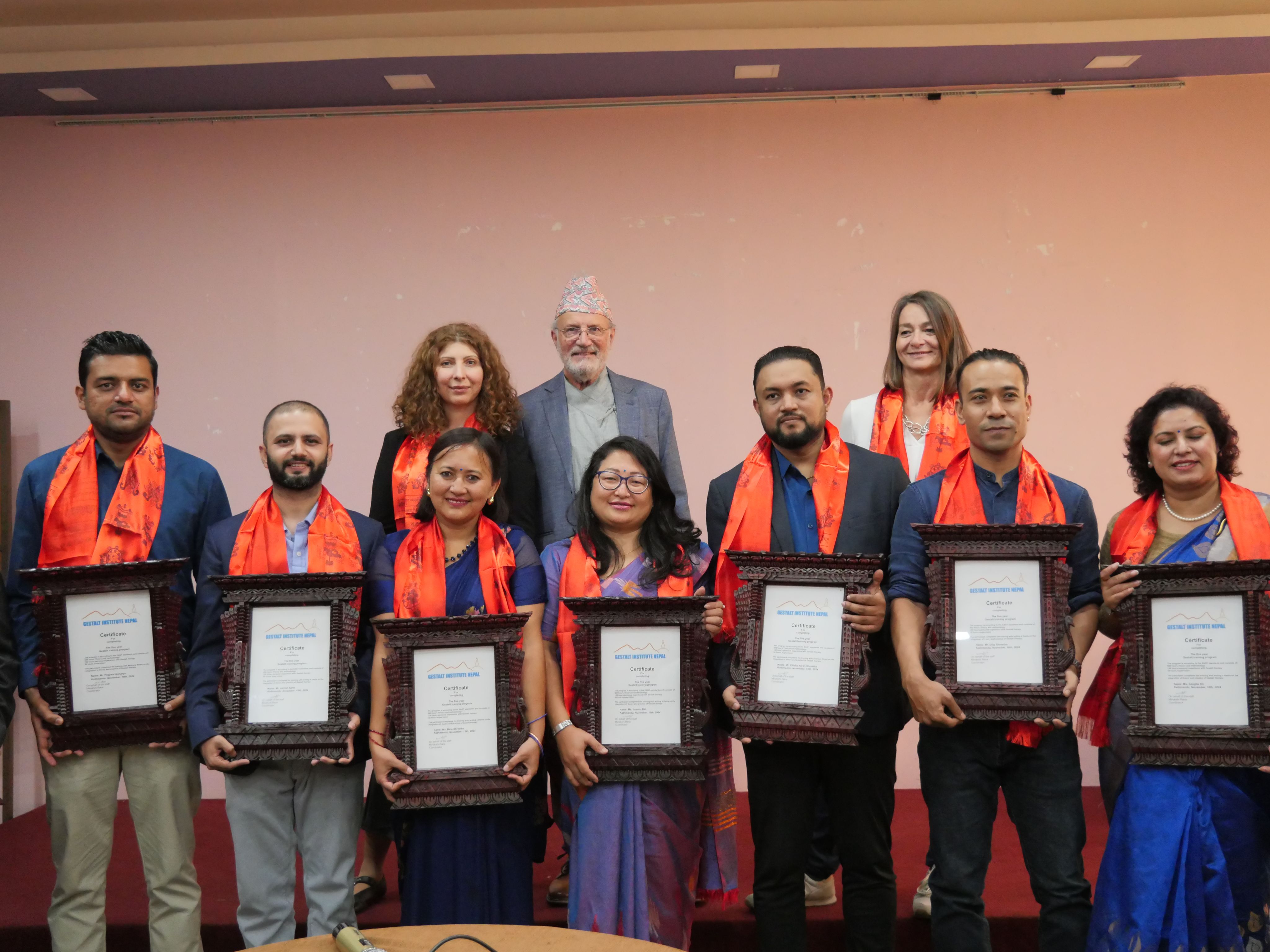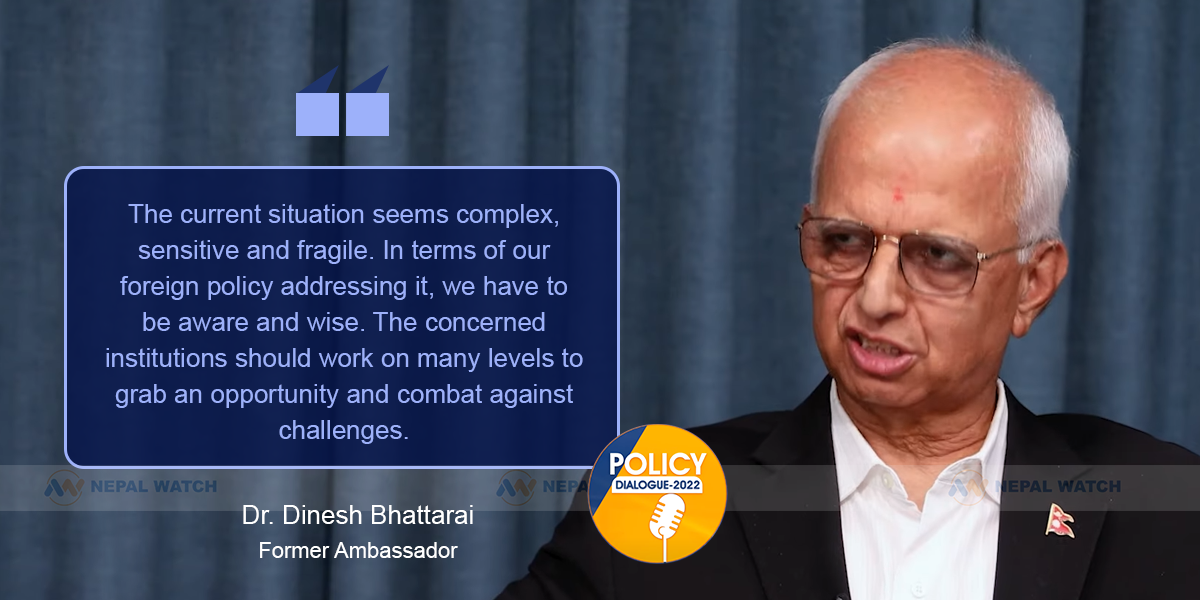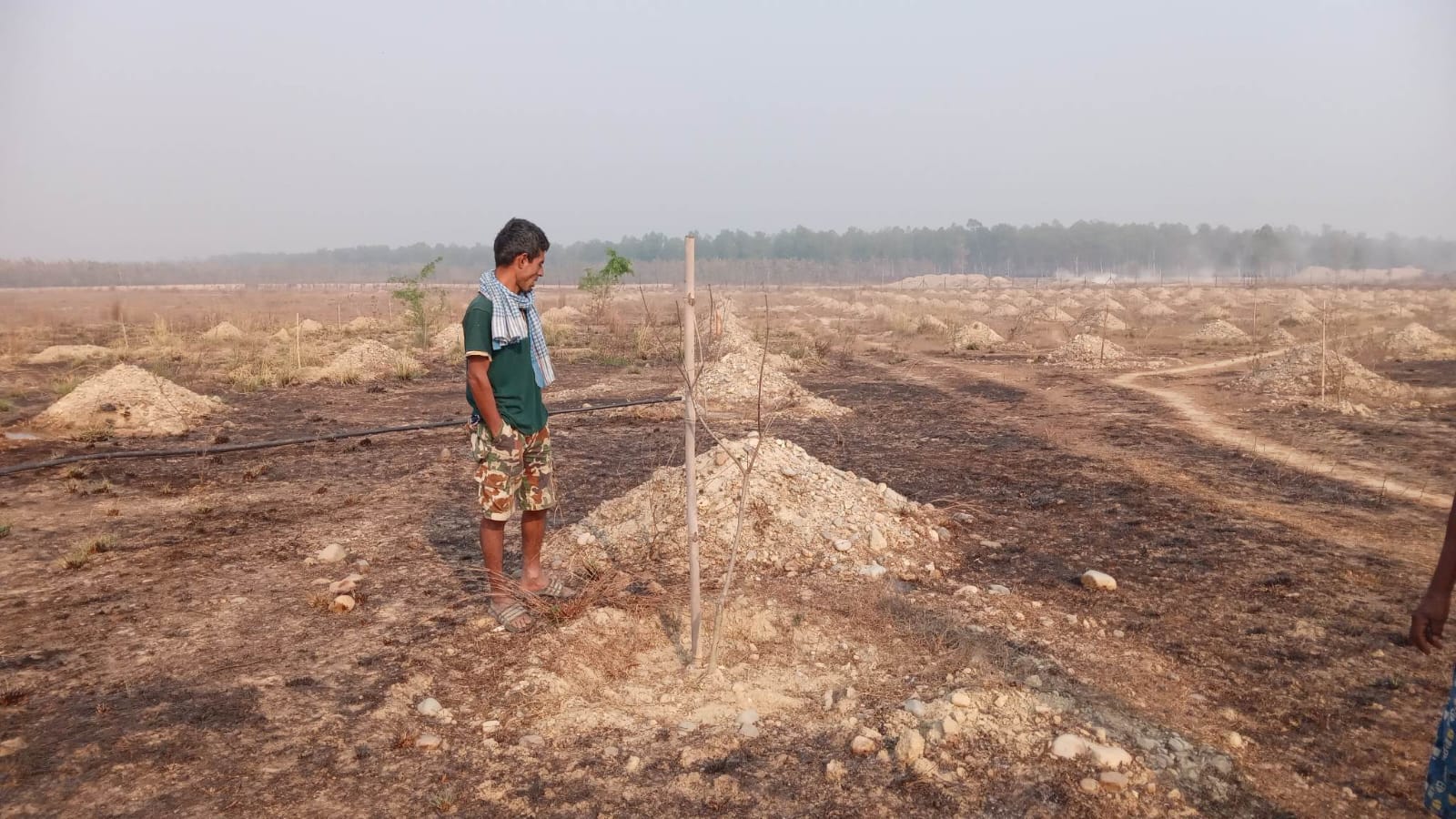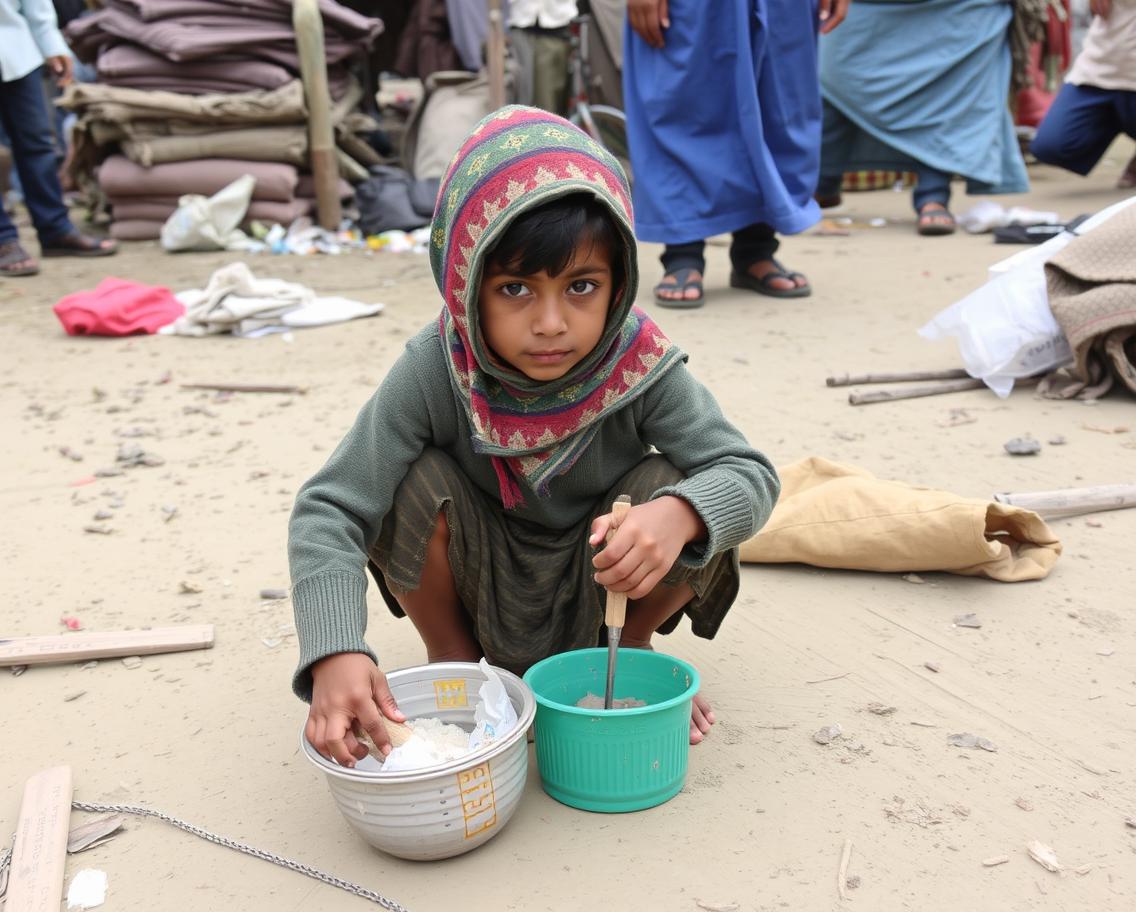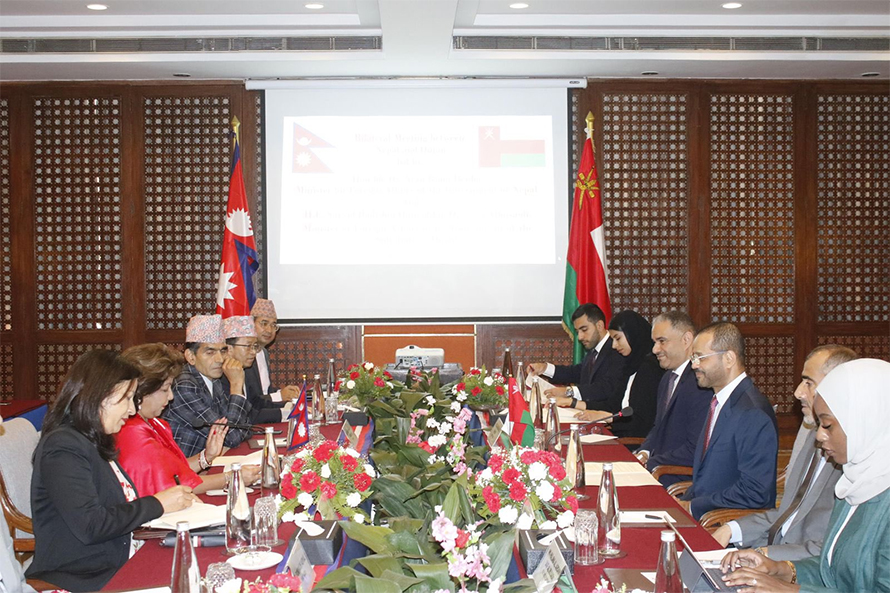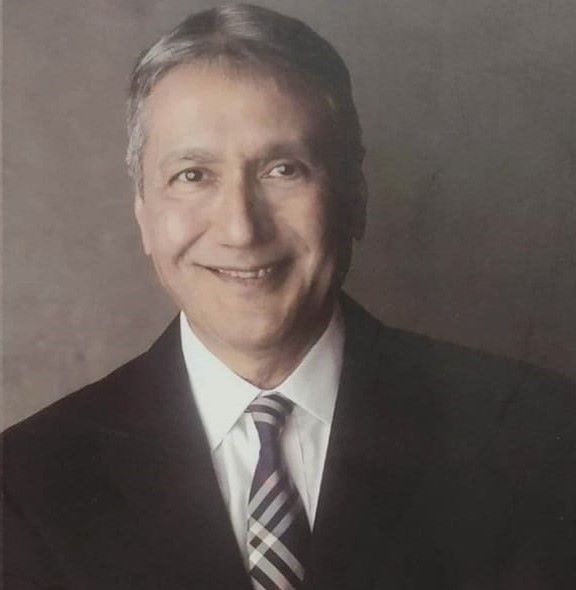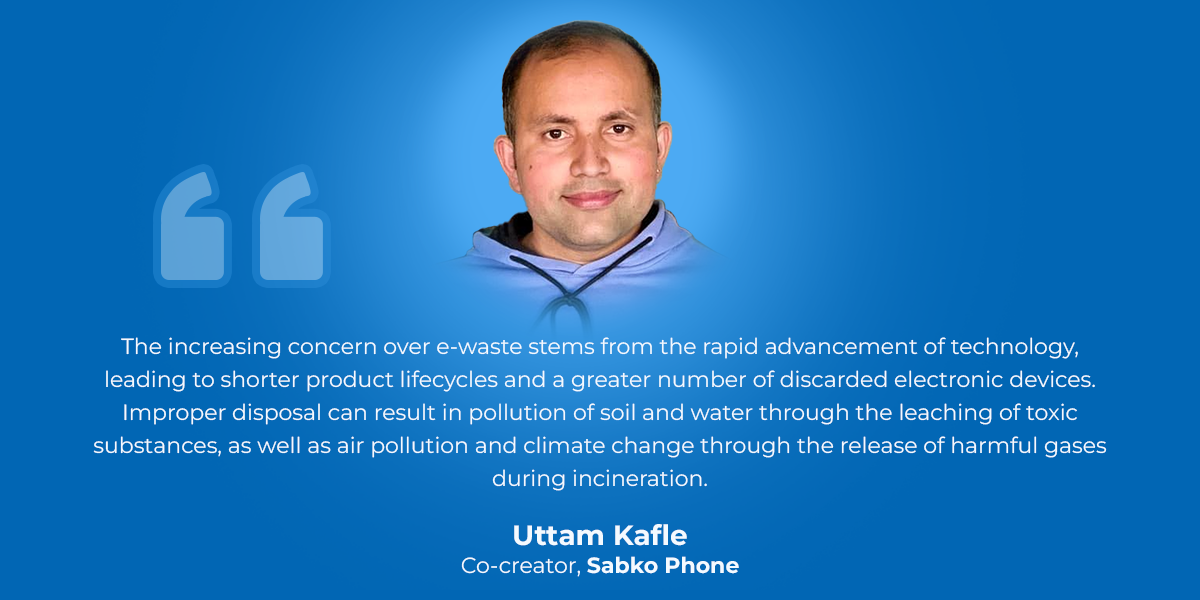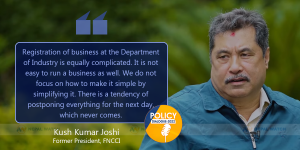We must shun the mindset that investment by the private sector in education and health is like a crime
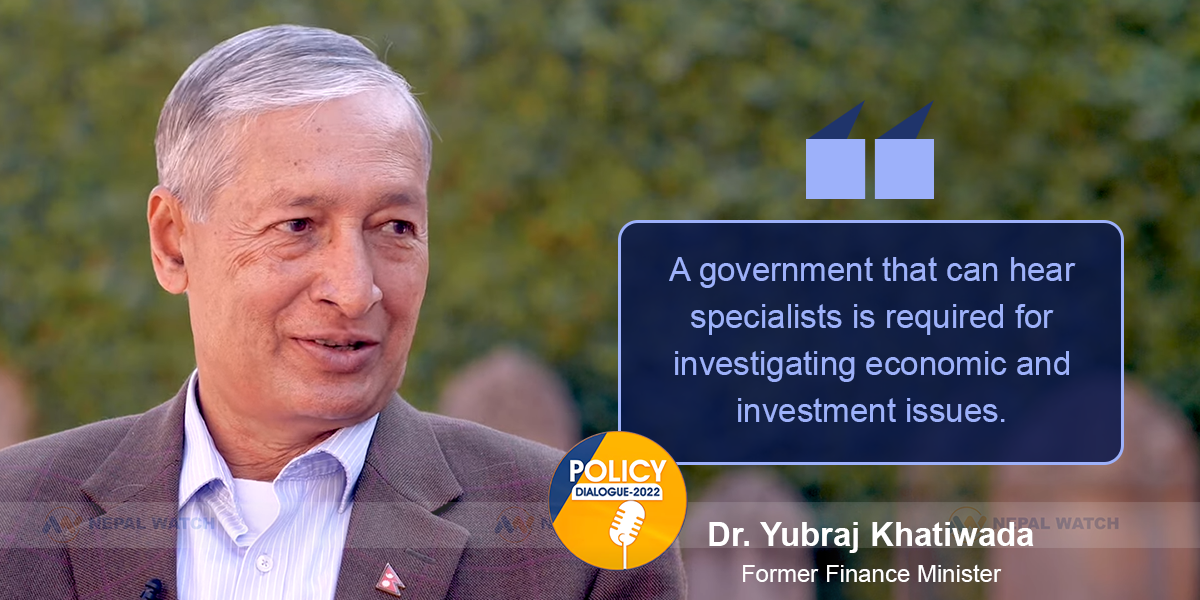
Kathmandu. It is the common responsibility of all countries in the globe to achieve the sustainable development goals (SDGs). But at the present moment, the entire world is lagging behind in fulfilling this responsibility. The impact of global COVID-19 pandemic has been a main factor in implementing the goals.
Domestic economy of various countries has become fragile. So, foreign trade and investment opportunities are gradually shrinking. The source of revenue is also declining. Resources are facing challenges.
The private sector plays a role in achieving the SDGs. But, it is lagging behind too. It is not moving the same way it is supposed to. Investors are not convinced that they will get returns on their investments due to existing recession and nation-wide economic problems that have caused distrust in business. They are lagging behind as a result of a failure to fulfill their expectation to get returns on their investment.
It seems work on the institutional responsibility is not moving as expected. It does not mean that we have reached the point wherein reforms cannot take place. Seven to eight years are enough time for economic reforms. We will be successful in achieving the SDGs when there is labour.
General elections have recently concluded in the country. The government that must hear experts should be formed to explore and resolve problems like these facing the country’s economy. Some ‘special’ works should be done to mobilize foreign assistances when such government is formed; I am going to shed light on the matter.
There are financing gaps in the private sector. We must view domestic financing gaps through liquidity in the banking system. We must view foreign investment. We must think over where to divert domestic investments by carrying out policy reforms.
There are expectations that responsibilities to the society and environment should not be missed while generating incomes. But, work should be done for incomes. For this, many legal, institutional and procedural reforms should be carried out.
Now, as we are gradually becoming a developing country, we must not have the mindset that we will only get ‘grant in aid’ but no other assistances. We should also go for soft loans. We should take soft loans for national priority projects after building our capacity to payback. This is not an all in all option though.
We have earlier talked about three or four problems in the direct foreign investment. First of all, the business climate in the country is improving. It should seem all are equally treated. Domestic investors will be discouraged when there is a tendency of favouring some businesspersons and ignoring others. How foreign investors are attracted when domestic investors are displeased?
There is a need to have corrections in laws. It has been five years that we during the investment conference
committed some corrections in so and so laws. We have not added a single law after the investment conference.
We have made the public private partnership act. But, there is a rigid provision for formulating the regulation. We have the tendency of making somehow a rigid regulation of an act. There is a need to have any form of amendment to the company act and laws related to the foreign exchange rate, intellectual property rights, bankruptcy and public procurement.
The implementation of the one-door system that was introduced for institutional reforms has not been effective. Those opting for the system are deprived of rights. We must think over this.
Thirdly, the country has become federal. The provincial and local levels have got authority to grant licences to run industries in some cases. But, laws have yet to be made, resulting in problems for these industries.
Businesspersons are finding it difficult to run business by purchasing a plot due to soaring price of plots. There is a need to speed up the operation of industries. Problems including electric tariffs and bank interests will gradually be resolved. Now, there should be structural reforms instead of thematic ones. So far, we have created conducive climate for production. However, we are yet to focus on the market.
We had been stating that there would be difficulties if we did not construct a big bridge at Dodhara Chandani or develop infrastructures being mindful that big investments would not come in without an access to the international market.
Such things of developing big infrastructures are related to the market access. Our market cannot address any increasing demand from our customers. Our payment balance becomes disrupted when we go for it. So, we must focus on two subjects in particular while exploring the external market.
Despite talks for exploring the Indian market, there are external obstructions rather than the issue of customs. We must remove these obstacles. We have not done any correction in the trade treaty with China. We did the transit treaty, but we did not focus on renewing the trade treaty. The Chinese market could be for some of our products.
The country’s market could be expanded to other countries in the South Asia. A large-scale investment is missing as a result of a failure to focus on the issue. It is because investors opt for the countries having the sea transport system for investments instead of going to Nepal without the sea transport.
Sometime, it is possible for oneself to invest by self-ensuring the market. Readymade clothing could be a case in point. There are Indian investments and the market for electricity. On the other hand, the sensitivity of geopolitics comes in when talking about Indian investments. The situation should not come wherein a neighbour frowns when another neighbour make investments. In such situation, a climate should be ensured wherein productions from investments in the infrastructure sector should export to the international market including in the neighbouring countries.
On the other hand, we have hardly opened the door for exporting minerals at subsidies. We should further manage these opportunities. Foreign investments at a large scale are possible in coal mining. Foreign investments are possible in the area of light weighted production items that draw high value when there is a base for raw materials in the country having export capacity. There is no need for foreign investments by importing raw materials and exporting the products to third countries.
Now, there are no differences in customs rates for us and neighbouring India. The market can be competitive by encouraging foreign investments through the medium of our raw materials. We must go for it.
Now, who is the focal point for carrying all these agendas? How do the Ministries of Industry and Finance, and the National Planning Commission play as a coordinator?
The problem remains since I took charge of the finance minister. The Ministries of Industry and Finance are always in conflict. They only seek exemption, and talk about taxes. In this scenario, the National Planning Commission should intervene, and adopt the policy of ‘give and take’. All three sectors cannot play as a coordinator this way. Line ministry of the private sector is the Ministry of Industry, Commerce and Supplies. We will reach nowhere by questioning the entire structures and leadership of it.
Now, what is good news is that the private sector itself is making the draft of laws. In the past, donor agencies would vex. Most of the suggestions offered to the government by the private sector are related to the improvement of investment climate. SDGs, the aim of increasing economy development and developing urban infrastructures cannot be realised unless the investment climate is improved.
The private sector should be handed the responsibility in the area where it can work competitively along with its responsibility to institutions and environment. The state should intervene in case of its failure for fulfilling these responsibilities. There is a problem in our political economy. The state is well resourced; there is a need to remove the mindset that it does not face any problems of resources, properties and efficiency.
There is an understanding that the private sector investing in education and health is a crime. This rhetoric should be removed. Investments by the private sector in the social sector could be encouraged. In that case, what should be considered is an access. The general people should get the service irrespective of whoever deliver it. The focus should not be on whoever is offering the service. And, the state should maintain good governance in all these activities. This is where the problem of our understanding of the political economy lies.
Neither it nor the private sector can run industries and business if the government holds the belief that it should operate them itself.
(Edited excerpts from former Finance Minister Yuba Raj Khatiwada in the policy dialogue-2022 presented by Nepal Watch.com Television)
Trending
Related News
Latest
-

Riddara RD6 EV Pick Up Launches Exchange Offer In Nepal
-

Shop More, Save More with Daraz Nepal’s 5.5 Best Price, Best Deals
-

Unveiling the Galaxy S25 Ultra 1TB: Samsung’s Tera-fic New Flagship Variant Kicks Off the New Year with Unprecedented Storage Power
-

UK announces £10 million for Myanmar quake relief
-

World Bank Approves financing package of 150 Million USD to Nepal



